Germany brands allegations against ambassador in Uganda 'absurd'
Ethiopia’s diplomatic travel ban ends as ‘peace restored’
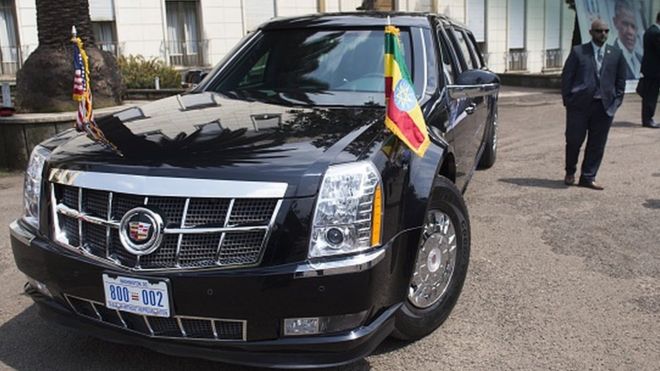
Getty / The ban on diplomatic travel was imposed as part of last month's state of emergency
Ethiopia has lifted a ban on diplomats travelling more than 40km (25 miles) from the capital Addis Ababa without permission, state media report.
The ban was imposed under last month’s state of emergency and has been lifted because relative peace and security has been restored, Defence Minister Siraj Fegessa was quoted as saying.
Ethiopia has recently faced an unprecedented wave of violent protests.
But Mr Fegessa said the situation nationwide was now much more stable.
He said the travel ban – imposed for the safety of diplomats – was being lifted because it was “unthinkable” that the security threat was so serious.

The government says Ethiopia has become more stable
Ethiopia last month declared a six-month state of emergency after a wave of deadly anti-government demonstrations by activists in both the Oromia and Amhara regions.
The deaths of at least 55 people at an Oromo religious festival on 2 October triggered fresh unrest, including the targeting of some foreign-owned businesses.
Rights groups say that at least 500 people have died during the protests overall.
Some of the things restricted under the state of emergency included social media, broadcast media, protests, gestures, freedom of movement and guns.
The protests in Ethiopia
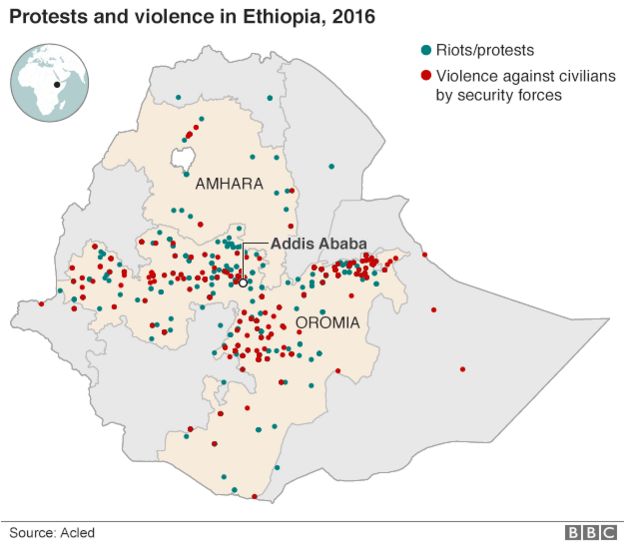
Six things still banned under Ethiopia’s state of emergency
1. Social media
You cannot use social media, such as Facebook and Twitter, to contact what are called “outside forces”. In fact, any attempt to communicate with “terrorist organisations and anti-peace groups designated as terrorist” is banned.
Protesters have been posting messages and mobile phone footage to social media and websites run by Ethiopian dissidents living abroad.
The government has accused Eritrea and Egypt of fomenting the protests.
2. Broadcast Media
You cannot watch the TV channels Esat and OMN, which are both based outside the country. The government has described them as “belonging to terrorist organisations”.
These broadcasters have become some of the major sources for people wanting to know more about the protests.
3. Protests
You cannot organise a demonstration at your school or university, neither can you be involved in a political campaign that is “likely to cause disturbances, violence, hatred and distrust among the people”.
University campuses were among the first places to be hit by the wave of anti-government protests.
4. Gestures
You cannot make a political gesture, such as crossing your arms above your head, or communicate a political message to the public “without permission”.
The crossing-arms gesture has been seen widely at the protests in Oromia, and even made it to the Olympics when marathon runner Feyisa Lilesa used it as he crossed the line in second place in Rio in August.
5. Curfew
You cannot visit a factory, farm or governmental institution between 6pm and 6am the next day. If you violate the curfew than “law enforcement bodies have been authorised to take the necessary action”.
Government buildings and private businesses, some of them foreign owned, have been deliberately targeted by some of the protesters.
6.Guns
If you have a gun, you cannot take it within 25km of the country’s main roads out of Addis Ababa, and within 50km of the country’s borders, even if you have a permit to carry it.


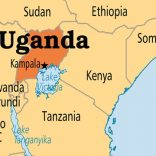



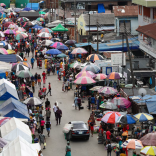
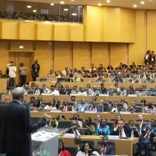




Leave a Reply
Be the First to Comment!
You must be logged in to post a comment.
You must be logged in to post a comment.